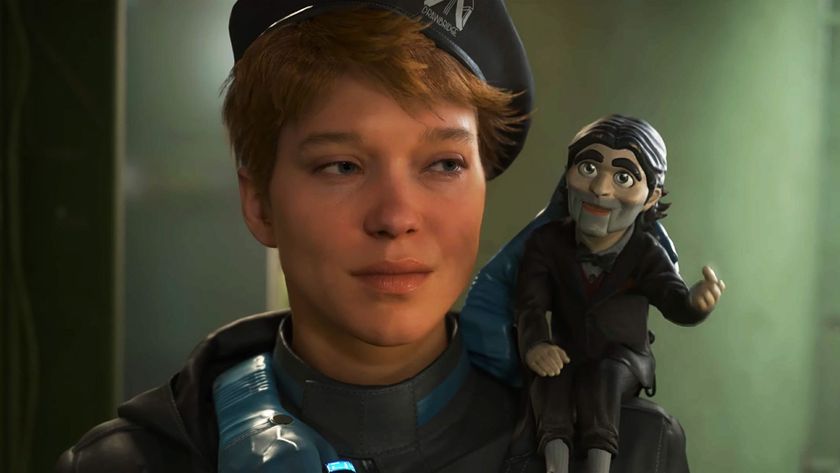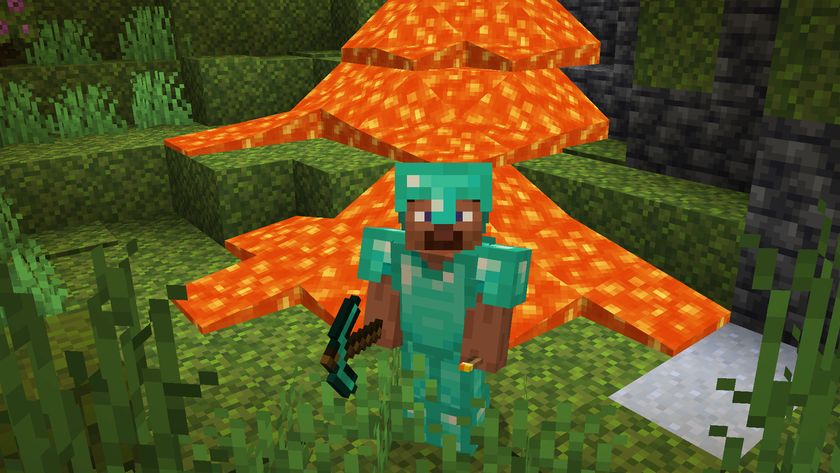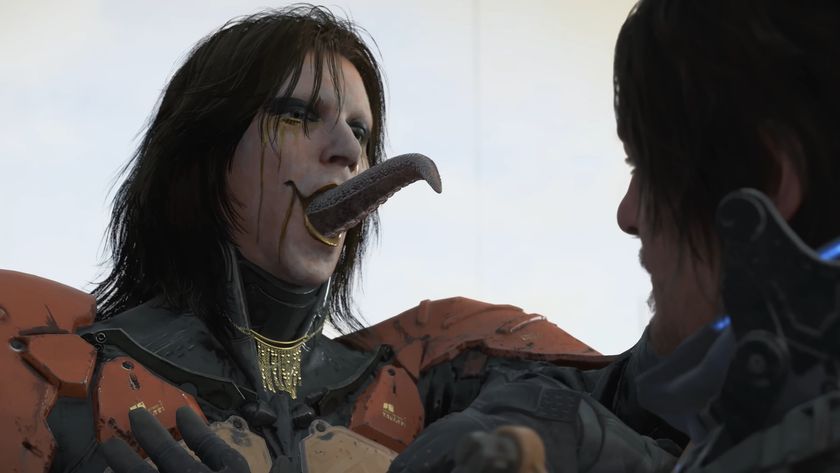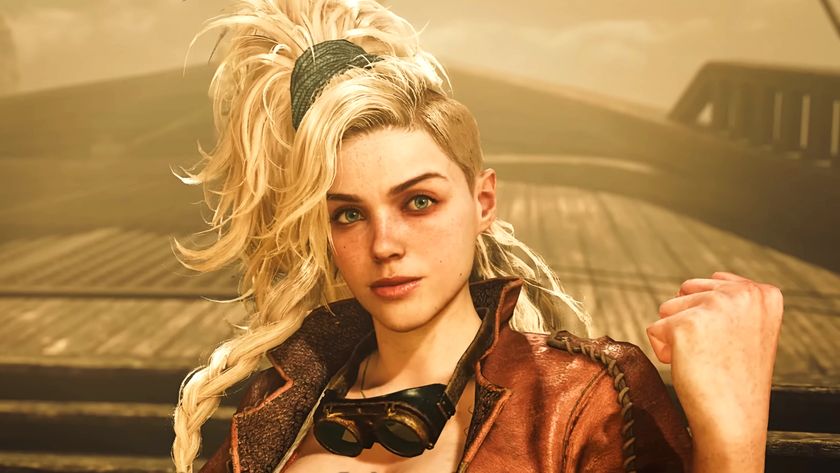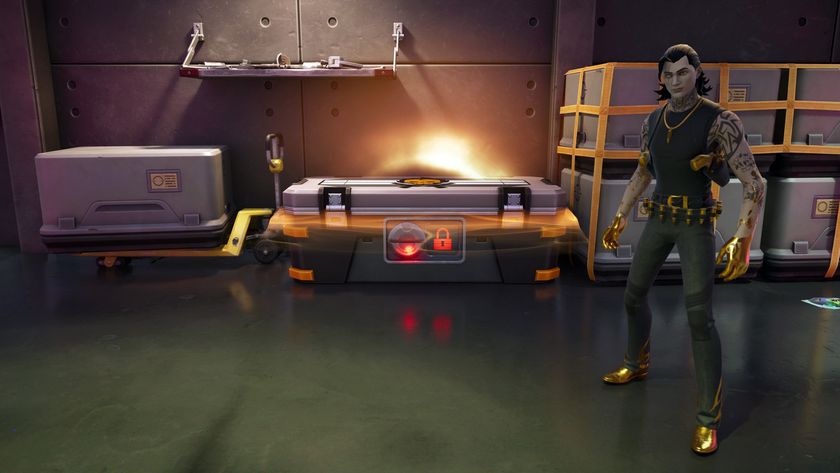6 trends we noticed from Tokyo Game Show 2013
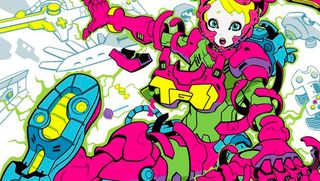
The future, or the past?
Tokyo Game Show used to be the biggest event of the year for gamers, but as Japanese development found itself being overtaken by the West, the importance of the convention has waned. That's not to say it's no longer important, though--TGS is still a vital part of the industry, giving a glimpse into what Japan's developers, publishers, and public are interested in. Some of gaming's greatest innovations have come out of Japan, and there's no reason to think that this won't continue into the future.
This year gave us vital insight into the current status of Japanese game development, and a look into what the next few years of Capcom, Namco Bandai, Sony, and Tecmo might look like. What will be the next big genre to break out of Japan? What is the gaming public currently obsessed with? We found out.
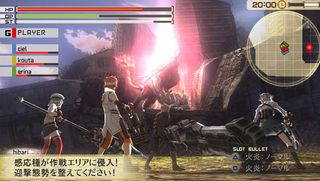
Monster Hunter clones are bigger than ever
Monster Hunter 4 came out in Japan this week, and while it didn't do GTA 5 numbers, it still sold absurdly well considering it only launched in one market. Everywhere you turn there are people playing it, giant billboards for it, and stores promoting it--honestly, it's about as crazy as a Call of Duty launch in the states. The country is obsessed with MH, and nowhere was that as evident as it was at the show itself.
Every few booths we'd see some sort of Monster Hunter clone, be it Soul Sacrifice Delta or God Eater Burst 2. Hell, even the games that weren't outright copies looked like they included some MH elements--we've a feeling Deep Down will include some sort of monster hunting. We saw Monster Hunter's camera angles, inventories, and gameplay elements in nearly a dozen games, and suspected we might have found even more examples if we'd have had time to play everything. It's the big thing in Japan right now, and everyone wants a piece.

Next-gen doesn't appear to be all that important yet
Microsoft and Sony both had booths showing off their next-gen consoles, but, honestly, the new hardware has a relatively small footprint on the show floor. Instead, it looked like most developers decided to simply stay the course, pushing out new games for the PlayStation 3, 3DS, and Vita instead of preparing for the impending generational switch.
This, most likely, is tied to the delay of next-gen consoles landing in Japan. With Microsoft and Sony both stalling their Japanese launches to 2014, Japanese developers don't necessarily have a strong reason to show off their shiny PS4 games. Maybe next year, when the consoles are actually out, we'll notice a difference, but in 2013 it doesn't appear as though Japan cares much about the next-gen.

It's as if the Wii U doesnt really exist
While we were mildly surprised by the lack of PS4 and Xbox One games, we were outright shocked by the complete lack of Wii U titles at the show. In fact we don't know if we saw any. At all. There might have been one or two squirreled away in a closet somewhere, but seriously--Nintendo's tablet-based peripheral was nowhere to be found.
This might be due to Nintendo's decision not to show anything at the Tokyo Game Show, but you'd still expect some developers to have things to show off that take advantage of the console. It's out, after all, and Nintendo is still a pretty big name in Japan. It's just weirdly absent.

More and more developers are working on crossovers
Puyo Puyo Tetris was being shown off at the Sony booth this year, a game that mixes... well, Puyo Puyo with Tetris. It's a competitive game where one player plays one game and the other plays the other, with very little actual crossover of the two. It's like having one team play basketball and another play tennis on the same court. And that wasn't the only crossover we saw--in fact, we noticed that there were a good number of developers striking deals with other developers to merge their licenses.
Most were mergers of two Japanese-exclusive franchises or cartoons we'd never heard of, but there were some that actually looked quite interesting. The highlight, obviously, was J-Stars Victory Vs., which brings Japan's biggest anime characters into one big, AAA brawler. It'll never, ever be released in America, but it's still fun to watch Naruto beat the hell out of Goku.
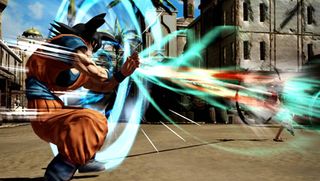
Brawlers are on the upswing
J-Stars Victory Vs. wasn't the only brawler, though. This genre appears to be on the upswing, with more developers finding unique ways to drop a bunch of people into an arena and have them beat each other up. It makes sense--they're good for the aforementioned mash-ups, and they seem to be an interesting way to merge traditional Japanese gameplay with more action-based combat.
If you dont know what we're talking about--and haven't played Platinum's Anarchy Reigns--the genre is actually something fairly new. In it, a bunch of combatants run around an arena locking onto/blasting each other with attacks until they die. It's like a merger of a fighting game and League of Legends, and there's a change it'll be the next big thing out of Japan (if their arcades, which are also filled with brawlers, are any indication).
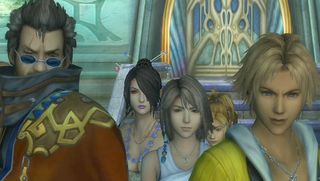
Everyone is remaking everything
Walk by the Square booth and you'll see Final Fantasy X HD on display--and only a few booths over you'll see Capcom' who is re-releasing Monster Hunter Frontier G for the Vita. Namco is remaking Soulcalibur 2 and adding online multiplayer, and Castlevania: Mirror of Fate being bumped to HD. Oh, and Sega had Castle of Illusion HD at its booth, too.
With the next-generation of consoles about to hit, developers are scrambling to squeeze a few more dollars out of their older games. We're not condemning them--as we discussed in an editorial a few months back, HD remakes (and, soon, streaming) are the best way to save gaming's heritage.
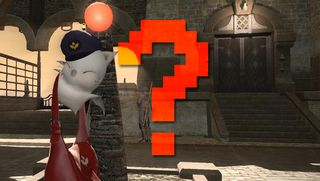
Welcome to Tokyo
Will these trends lead to changes in gaming's future? Undoubtably--though we have no idea what those changes will be. What do you think? Is there any news from TGS that you expect to have a huge impact on gaming? Let us know!
And if you're looking for more, check out TGS 2013 cosplay and the coolest merch from TGS.

Hollander Cooper was the Lead Features Editor of 12DOVE between 2011 and 2014. After that lengthy stint managing GR's editorial calendar he moved behind the curtain and into the video game industry itself, working as social media manager for EA and as a communications lead at Riot Games. Hollander is currently stationed at Apple as an organic social lead for the App Store and Apple Arcade.
